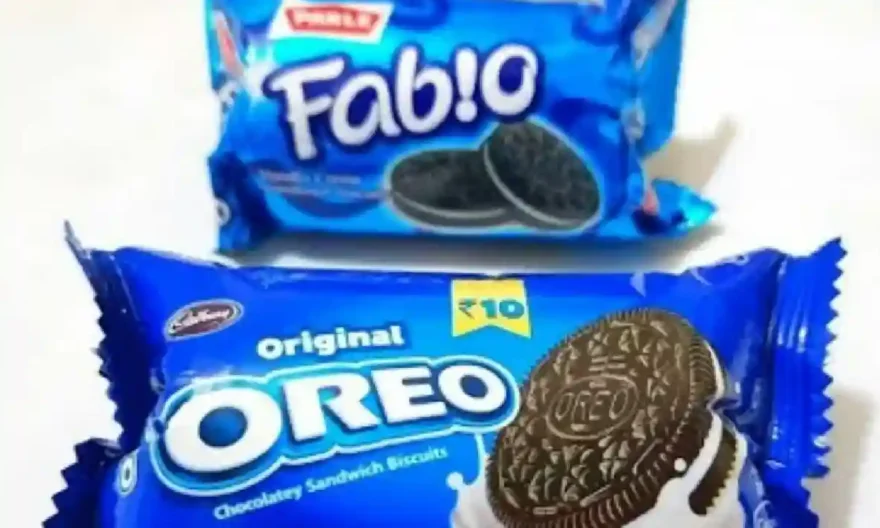
The Delhi High Court on Friday granted interim protection to ‘OREO’ in a suit filed by its owner Intercontinental Great Brands, saying that brand names for biscuits and cookies ending in ‘IO’ or ‘EO’ are rare in the market and a customer of average intelligence is likely to assume an association between OREO cookies and Parle’s ‘FAB!O’ biscuits.
According to Justice C Hari Shankar stated names ending with ‘O’ or ‘IO’ are not common on biscuits.
The owner and proprietor of the OREO brand of biscuits has filed a trade mark infringement suit against Parle Products Pvt. Ltd., alleging that Parle is selling its range of vanilla cream filled chocolate biscuits under the brand name ‘FAB!O,’ which is deceptively similar to the OREO mark. The plaintiff also claims that Parle is manufacturing and selling ‘Fab!O’ biscuits in deceptively similar trade dress.
He observed, “Seen in conjunction with the fact that the ‘FAB!O’ mark is used by the defendant only in respect of cream filled chocolate sandwich biscuits, and that, in fact, the blue package is used only for vanilla cream filled chocolate sandwich biscuits, the Court is inclined, prima facie, to hold that the defendant has consciously sought to approach as close to the plaintiff’s ‘OREO’ mark as possible by adding a terminal ‘O’ to its pre-existing ‘FAB!’ mark.
He added, “A customer of average intelligence and imperfect recollection who is familiar with the plaintiff’s vanilla cream filled chocolate OREO cookies and the package in which they are sold and later encounters the defendant’s vanilla cream filled chocolate FAB!O cookies, in a deceptively similar blue package, may legitimately be expected to draw an association between the FAB!O and OREO marks as both being used by the same manufacturer. The possibility of an association being drawn between the defendant’s impugned mark and the plaintiff’s mark cannot be overstated.”
According to the court, the terminal ‘eo’ sound in ‘OREO’ is one of the distinguishing features of the plaintiff’s product that distinguishes the biscuits in the mind of the average consumer with imperfect recollection.
The Parle argued before the High Court that there is no phonetic similarity between the two brands because the first syllables of the two marks are different.
The Court took notice of the advertisements on the Parle’s Facebook page and stated, “The manner in which the defendant has, in its advertisements, declared that its “FAB!O” mark is required to be pronounced as “fabee-yo” amounts to a candid acknowledgement that “FAB!O” is required to be pronounced like “OREO”, which would be pronounced “or-ee-yo”. After having so represented to the public, the defendant can hardly claim that “FAB!O” and “OREO” are not phonetically similar.”
The court stated that the argument based on the dissimilarity of the first syllables of “FABIO” and “OREO” cannot be accepted because there are binding judicial precedents that have held marks to be phonetically similar and, thus, likely to confuse or deceive, even when their first syllables are different.
The bench concluded that the addition of ‘O’ by the defendant, Parle, is prima facie deliberate, stating, “the defendant is using the “FAB!O” mark solely in respect of the vanilla cream filled chocolate sandwich biscuits, in packs that are strikingly similar to those in which the plaintiff packs and sells its vanilla cream filled chocolate sandwich biscuits.”
On similar trade dresses, the court ruled that the distinguishing features of the two packagings are insufficient to persuade a customer of average intelligence and imperfect recollection that the biscuits are manufactured by two different entities.
The defendant, Parle, claimed that the plaintiff, Intercontinental Great Brands, used common trade dress for its OREO cookies. Parle relied on photographs of biscuits manufactured and sold by other manufacturers in similar colour and feature packages.
Rejecting the arguments raised by Parle, the bench stated, “Commonality to the trade, statutorily, is not a defence against infringement, though it curtails the plaintiff’s right. According to Section 17(2)(b) of the Trade Marks Act, no exclusivity can be claimed in respect of any part of a trade mark that is common to the trade.”
The court prohibited Parle from using the FABIO or FAB!O marks, as well as manufacturing, packing, and selling its vanilla cream filled chocolate sandwich biscuits in the infringing trade dress/pack.





